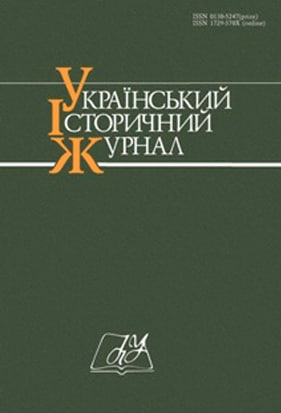Anticolonialism. Postcolonialism. Ukraine (Methodological Essay)
DOI:
https://doi.org/10.15407/uhj2024.04.173Keywords:
anticolonialism, postcolonialism, history of Ukraine, russification, assimilation, сoloniality, the triple self-identification of Russia, postcolonial Russo-Ukrainian warAbstract
The purpose is to analyze the concepts of anticolonialism and postcolonialism in the context of Ukrainian history.
The research methodology is based on the principles of intellectual history, the history of conceptual history, comparative history, postcolonial criticism, and methods of historiographical analysis.
The scientific novelty. The author compares anticolonialism and postcolonialism and examines ties between particularities of the type of colonialism, ways of thinking, and systems of knowledge in Europe, Asia, and Latin America that shaped these two types of resistance to colonialism. The writings of M. Hrushevskyi and the works of economic historians in the early Soviet period are used as examples of anticolonial discourse. The author outlines key points in the development of postcolonialism (E. Said and orientalism, subaltern studies, multicultura lism, and philosophy in the Global Age). I. Lysiak-Rudnytsky considered particularities of Ukrainian postcolonialism in connection to the distinct nature of colonialism on Ukrainian soil, characterized by the policy of russification and assimilation.
Conclusions. We are currently witnesses to the dialogue between anticolonial ideology and postcolonial criticism. In Russia, it manifests itself in the form of a triple self-identification. In Ukraine, due to the ongoing Russo-Ukrainian war, the processes of decolonization are accelerated, and the war takes on a postcolonial character.


